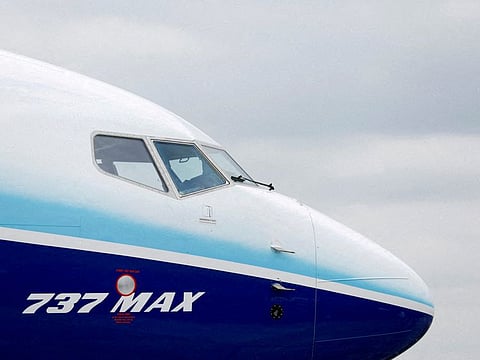Boeing works to win another Saudi deal, this time for 737 Max
Riyadh Air was unveiled in March to make Saudi Arabia’s economy less dependent on oil

Riyadh: Boeing is working to land its second major deal in Saudi Arabia this year, with the US planemaker in talks to sell at least 150 of its 737 Max jetliners to startup Riyadh Air, according to people familiar with the matter.
The new carrier, owned by Saudi Arabia’s sovereign wealth fund, is shopping for about 300 to 400 single-aisle jets in total, including options, said the people, who asked not to be identified since the discussions are private. Talks are complicated, with timing and structure still in flux, and Airbus could also claim a portion of the order, some of the people cautioned.
Boeing is pressing its advantage since Airbus has few available delivery slots for its A321neo jets before 2029, said the people. Negotiations continue, with a possible announcement at the Paris Air Show in mid June, though no decision has been made, they said.
A Boeing spokesman declined to comment, as did representatives at Riyadh Air and the Saudi Public Investment Fund.
A second major win would give Boeing an edge in a Gulf market primed for growth.
The earlier deal covered Boeing’s larger 787 Dreamliners to handle long-range flying for Riyadh Air and the existing flag-carrier, Saudia.
At the current $53 million going rate for a Max 8, a 150-jet order would be valued at about $8 billion, based on market-value estimates compiled by consultant Ascend by Cirium. Customers typically get steep discounts for large deals.
Riyadh Air was formally unveiled in March to make Saudi Arabia’s economy less dependent on oil.
Saudia now predominantly serves Jeddah and the Hajj pilgrimage market.
As part of the March accord, Riyadh Air is set to receive 39 787-9 jets, with options for 33 more. Run by former Etihad Aviation Group boss Tony Douglas, the carrier aims to connect more than 100 destinations around the world by 2030.
Sign up for the Daily Briefing
Get the latest news and updates straight to your inbox



